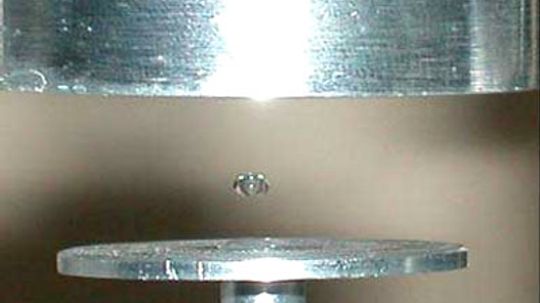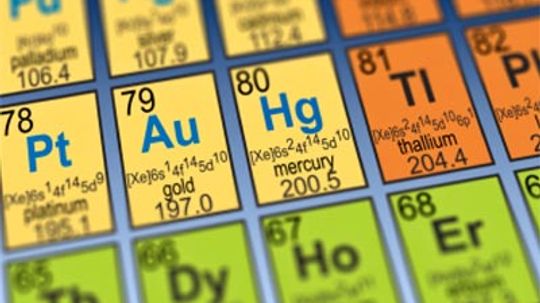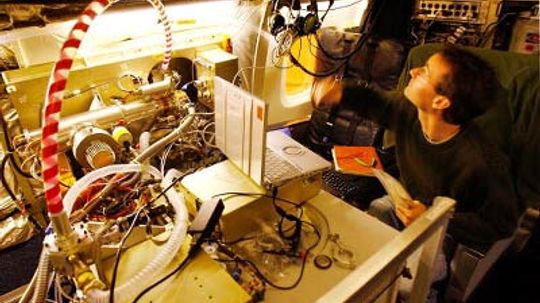Physical Science
Physical science is the study of the physical world around you. Learn about everything from electricity to magnetism in this section.

Brown Noise vs. White Noise: Which Is Best for Quality Sleep?

Can a sound wave kill you?

Can two cans and a string really be used to talk over a distance?

7 Types of Alcohol for Drinking, Cleaning and More

Understanding the Empirical Formula in Chemistry

The Most Expensive Metal in the World Isn't Gold or Platinum

How Electricity Works

How Faraday Cages Work

How Gasoline Works

What Does Mummification Have to Do With Gene Hackman?

What do bugs have to do with forensic science?

5 Things You Didn't Know About Autopsies

How Alchemy Paved the Way for Chemistry

How did Nikola Tesla change the way we use energy?

Time May Not Exist, Say Some Physicists and Philosophers

Why Does Ice Stick to Your Fingers?
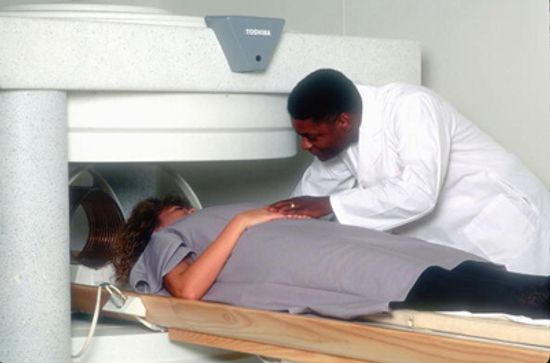
What if I forgot to remove a piercing before an MRI?
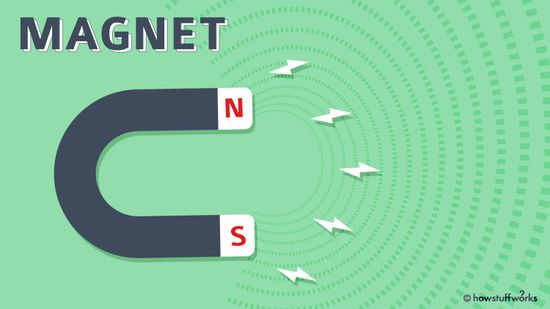
A Kid-friendly Introduction to Magnets and Magnetism

What's the Hardest Math Problem in the World? Try These 9

8 Types of Data That Inform Insights and Relationships
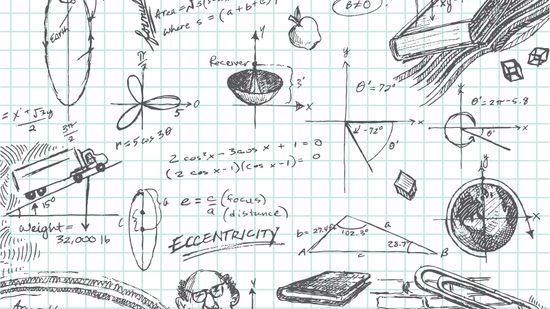
Congruent Angles: Definition, Symbol and Key Theorems

Tonnes vs. Tons: Metric vs. Imperial Measurements Strike Again

The Most Expensive Liquid Is 26,000x the Price of Human Blood

5 Hugely Fun Facts About Mass (Not Weight)

The Demon Core: A Tale of Atomic Ambition and Tragic Fate
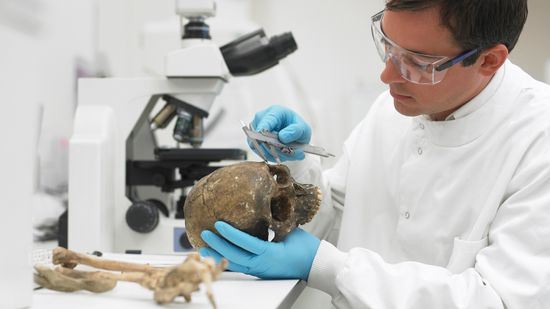
Half-Life Formula: Components and Applications
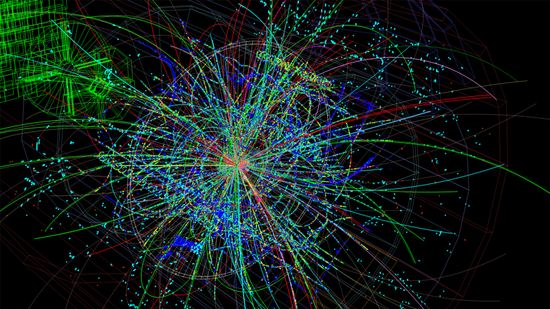
Could an 'X17 Particle' Hint at a Fifth Force in the Universe?

Why Are School Buses Yellow?

HowStuffWorks: How To Draw An Impossible Shape

What Are the Colors in the Visible Spectrum?
Learn More / Page 5
In detective movies or TV shows like "CSI," photographers swarm in and take countless pictures of a crime scene. But how does crime scene photography really go down?
By Sarah Dowdey
Imagine spending your days racked with pain or losing pound upon pound because nausea leaves you unable to eat. Now imagine that someone offers you a wonder drug to cure all your ills. The problem? It's illegal.
If you were thrown into prison for a crime you didn't commit, you'd probably welcome DNA profiling. Although the use of this technology has recently helped bring justice, there may be cause for concern.
Advertisement
The bloodstain from a crime scene has a story to tell, if you know how to analyze it. Then it might explain the who, what and when of a murder.
Who made it possible to light up your home at night? Thomas Edison, right? Yes, but without the work of Nikola Tesla, we would be living in a different world.
Criminals always leave traces behind after a crime is committed. In fact, footprints, tire tracks and tool marks are often more prevalent than fingerprints at a crime scene. What can impression evidence tell an investigator?
By John Fuller
The idea that something so intangible as acoustic levitation can lift objects may seem unbelievable, but it's a real phenomenon.
Advertisement
When there's a suspect in a crime and the evidence includes a handwritten note, investigators may call in handwriting experts to see if there's a match. How exactly do experts go about analyzing someone's handwriting?
By Julia Layton
Iran has announced its activation of a second set of uranium centrifuges. These machines are at the core of the uranium-enrichment process. Find out where the centrifuge fits into the equation.
A venerable work of art hangs lifeless in a museum, the once brilliant scene dulled by centuries of dirt and grime. Can laser analysis and modern art restoration techniques save the masterpiece?
We love it. We wear it glittering around our necks and sparkling at our ears, wrists and feet. We pass it down to our children and hoard it in secret stashes. Why is this precious metal so prized?
Advertisement
Can you pass the acid test? That electric Kool-Aid changed the fabric of 1960's American counterculture. So, what's it's like to trip on LSD?
Mushrooms - they're not just a pizza topping. This psychotropic fungus has guided many an adventurer on a trip. How do shrooms make their magic?
We once emptied the scent pods of male musk deer into a bottle of fragrance and doused it on, feeling like a million bucks. How has perfume changed since then?
Unlike the cheap microscopes you peered into in school, these advanced instruments can breathe rich detail into the tiny world around us, including the world of nanotechnology.
Advertisement
It begins with an unassuming "H" and ends in crazy elements that you've likely never heard of. But the periodic table, encapsulated on a mere sheet of paper, can be a scientist's best friend and a testament to our human drive to organize the world.
Mass spectrometry enables the major league to sniff out athletes guilty of doping. It can also help us locate oil or design a killer perfume. Who says chemistry isn't cool?
First, you burn the body until only brittle, pulverized bones are left. These remains are pulverized into ashes, and then placed into urns -- or diamonds, coral reefs and even outer space.
By Michelle Kim
Once considered a semiprecious metal alongside gold and silver, aluminum pretty much languished in obscurity until the 19th century. How did the metal become so ubiquitous?
Advertisement
Overtone is a sound accompanying the main tone produced by a vibrating body. The number and loudness of overtones determine the timbre, or tone color, of a musical sound.
An object free to vibrate tends to do so at a specific rate called the object's natural, or resonant, frequency.
When sound waves strike the ear, these waves produce the sensation of sound. Let's take a look at how sound waves work.
If you want to see a hologram, you don't have to look much farther than your wallet. But the most impressive holograms are large scale and illuminated with lasers or displayed in a darkened room with carefully directed lighting. Learn how a hologram, light and your brain work together make clear, 3-D images.
Advertisement
When it comes to stimulating the human central nervous system, meth can hold its shaky, toothless head high. Why is this drug so additive?
If the sight of a mushroom cloud burning above the horizon suggests that the nuclear weapon-equipped world might end with a bang, then nuclear winter presents the notion that post-World War III humanity might very well die with a whimper.
By Robert Lamb






